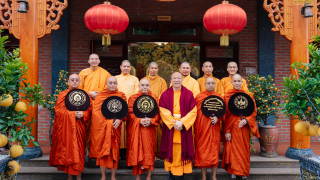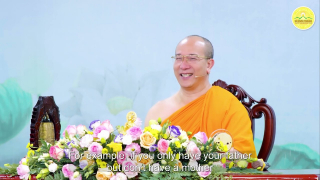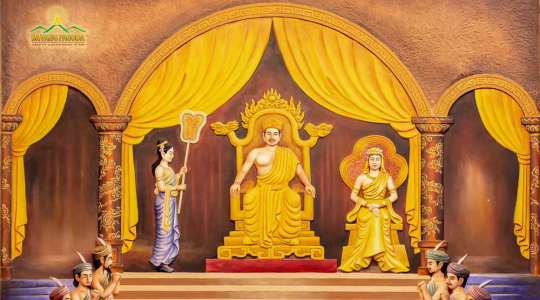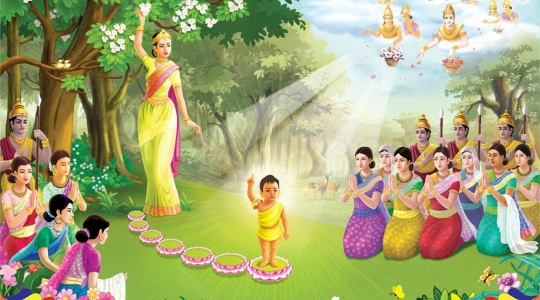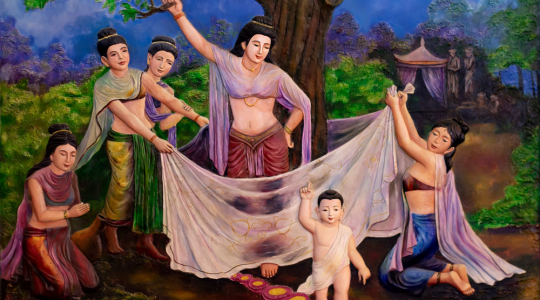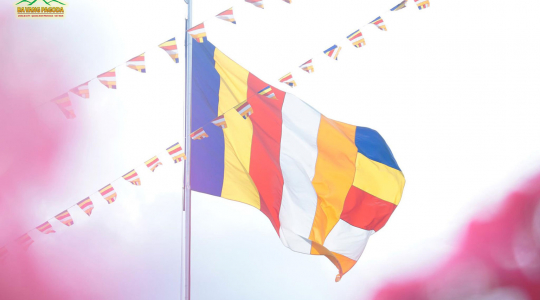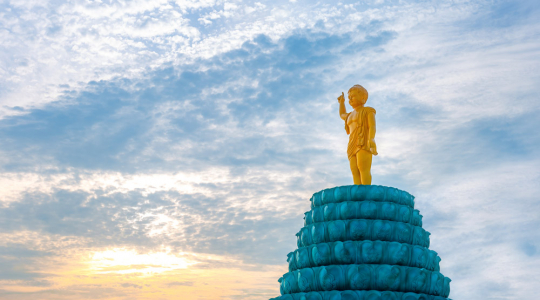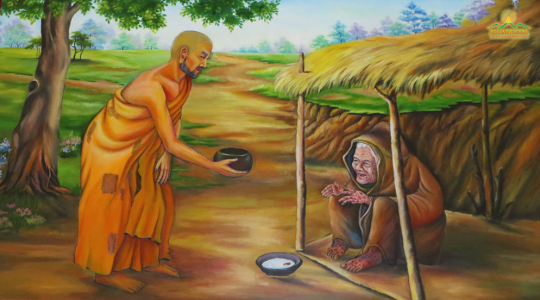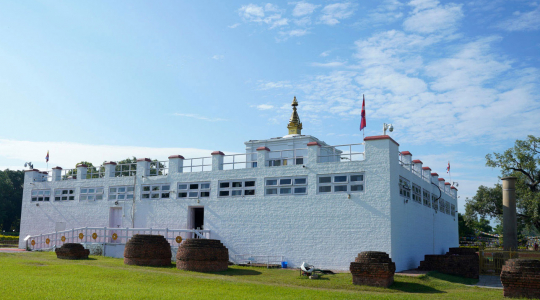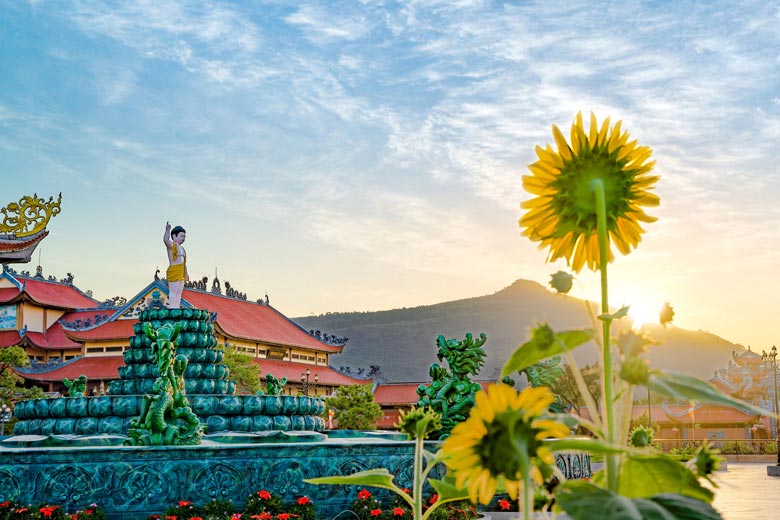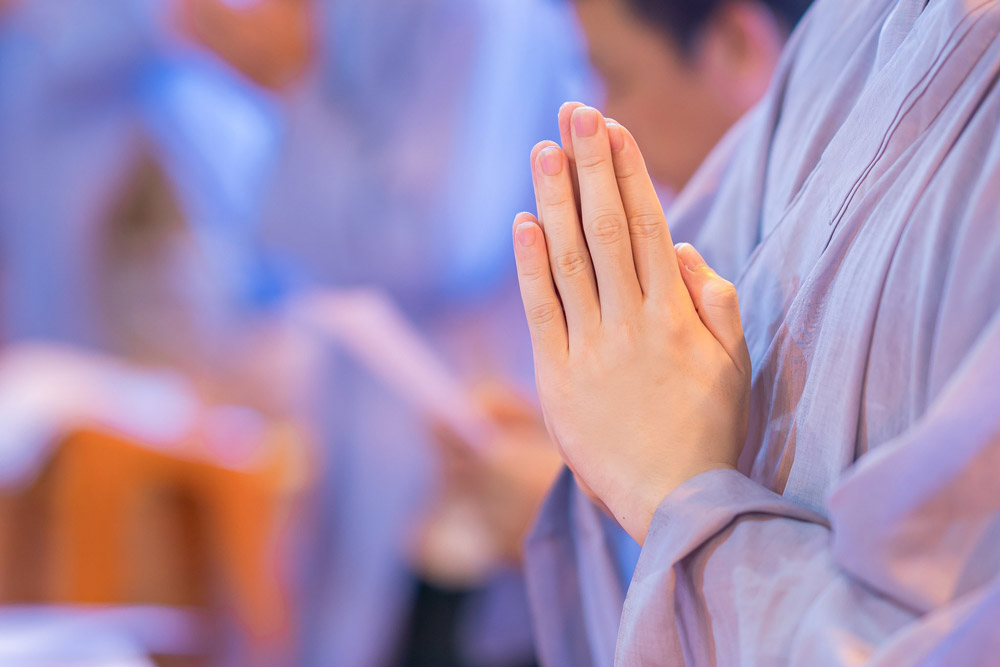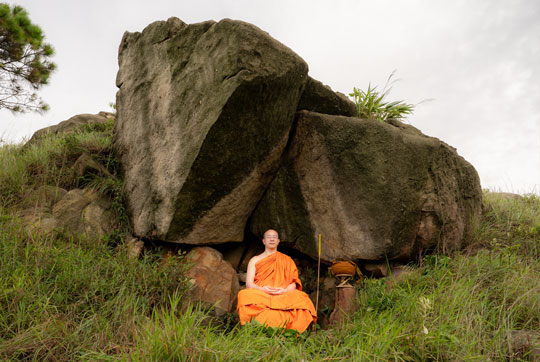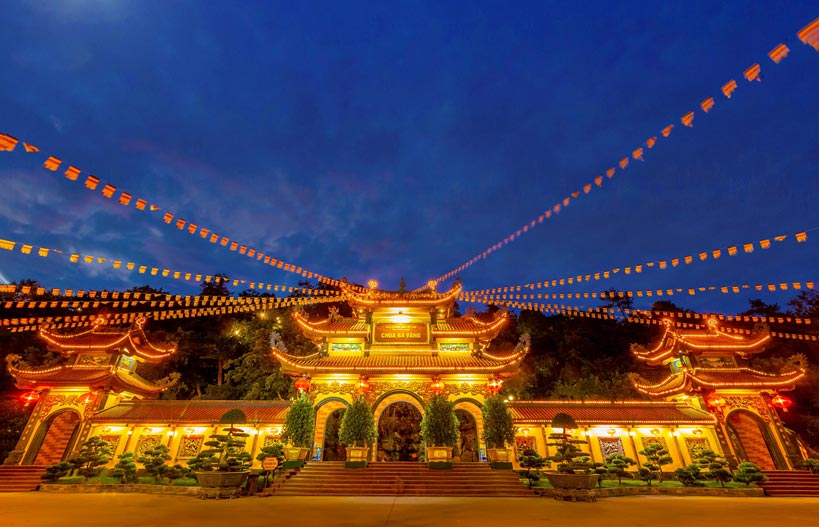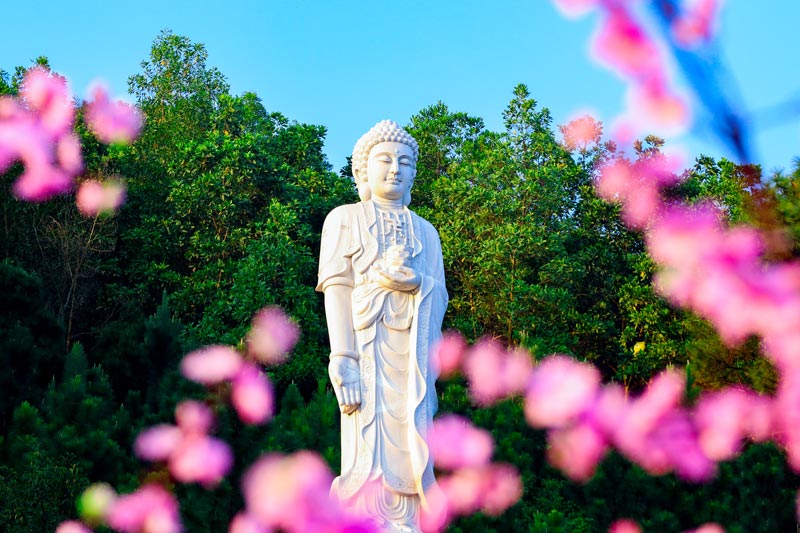King Tran Nhan Tong: Revealing his unique life and religious career in history
Table of contents [Hide]
King Tran Nhan Tong, whose birth name was Kham, was born on the 11th day of the 11th month, Year of the Horse (December 7, 1258). He was the eldest son of King Tran Thanh Tong and Queen Nguyen Thanh Thien Cam.
Over thousands of years of history, Tran Nhan Tong stands out as a rare king or even a unique one. He not only made a great contribution in repelling the most powerful foreign invaders in his era but also founded the Truc Lam Zen sect - a distinctive Vietnamese Zen lineage that continues to thrive in the present day. So, what was that talented and virtuous king-like, and what was impressive about his life? Let's read along.
Who was Tran Nhan Tong?
King Tran Nhan Tong, whose birth name was Kham, was born on the 11th day of the 11th month, Year of the Horse (December 7, 1258). He was the eldest son of King Tran Thanh Tong and Queen Nguyen Thanh Thien Cam, with an extraordinary appearance. He was the third king of the Tran Dynasty who ruled over the Dai Viet kingdom.
Historical documents recount that at birth, his skin was of pure golden hue, radiating a beautiful glow. Therefore, he was also called the “Golden Buddha.” He was very intelligent and highly studious. It was said that he read all the books and thoroughly understood both Buddhist and worldly teachings.
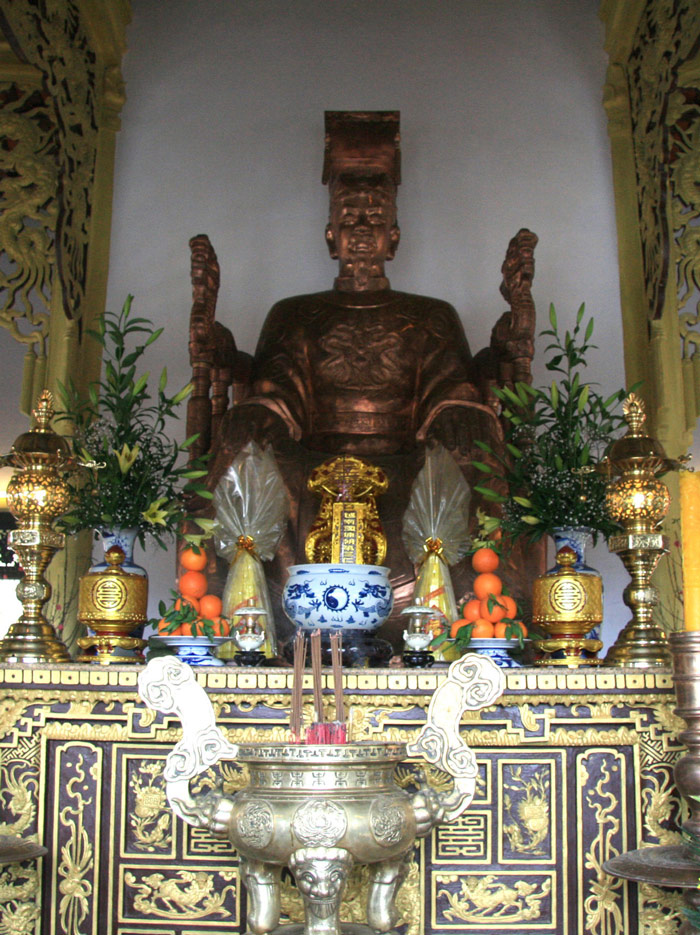
Statue of King Tran Nhan Tong - the third king of the Tran Dynasty of Dai Viet Kingdom. (source: Internet)
Where is King Tran Nhan Tong's hometown?
His hometown was Tuc Mac village, Thien Truong district (now Loc Vuong ward, Nam Dinh city, Vietnam).
The life and career of King Tran Nhan Tong
1. Life of King Tran Nhan Tong
In 1274, at the age of 16, he was designated as the Crown Prince. Previously, even though he had repeatedly refused the throne, asking to pass on to his younger brother, his father did not agree. Subsequently, the king married Nguyen Tu Quoc Mau's eldest daughter to him (later Queen Kham Tu).
Despite living in a peaceful and happy environment, he still favored spiritual practice. Even as a king - the highest authority in the nation, he did not eat dishes that were made by killing living beings.
One day, at midnight, he stealthily left the palace with the intention of dwelling in Yen Tu mountain for self-cultivation. By dawn, he arrived at Thap Pagoda on Dong Cuu Mountain. Exhausted from the journey, he went to rest in the tower. Here, upon seeing his extraordinary appearance, the abbot quickly prepared a meal for him. Meanwhile, back at the palace, the king knew of his absence, then sent mandarins to find him. Reluctantly, he had to return to the palace.
On the 22nd day of the 10th month, Year of the Tiger (1278), he ascended the throne, taking the title of Tran Nhan Tong. Despite his lofty position, he maintained a life of purity and often visited the Tu Phuoc pagoda for spiritual cultivation. This pagoda, nestled within the palace, served as a spiritual sanctuary for royalty.
One day, during a nap, he dreamt about a huge wheel-sized lotus blooming above his navel, and seated on the lotus was a golden Buddha. On the side, someone pointed towards that lotus and asked him: “Do you know this Buddha? That is Vairocana Buddha.” Upon awakening, he shared this dream with his father, King Tran Thanh Tong who commended it as an extraordinary and special dream.
King Tran Nhan Tong was an intelligent and studious person with a particular interest in meditation. In his spare time, he invited meditators to discuss Zen or study meditation with Tue Trung Thuong Si (the highest intellect who always lives within his wisdom) who was not only a Zen master, but also a major official in the royal court.
When the Mongols invaded Dai Viet, King Tran Nhan Tong set aside his Buddhist practice to focus on preserving the nation. With wise strategy, he applied the Six Harmonies of Buddhism to unite the people into a great unity. Thanks to that, he created the strength of the populace, enabling them to repel the Mongolian invaders twice (in 1285 and from 1287 to 1288), thereby safeguarding the independence and autonomy of the country.
This was a great success when King Tran Nhan Tong integrated Buddhism into life and actively spread the spirit of unity among the monarch and the mandarins, within the communities and families, etc., which contributed to the increasing prosperity of the Dai Viet Kingdom.
After a reign of 15 years, in the year of the Snake (1293), he ceded the throne to his son Tran Thuyen (also known as King Tran Anh Tong) and ascended Grand Emperor, preparing to become a monk.
In the 10th month of the year of the Pig (1299), he became a monk and dwelled in Yen Tu mountain (now in Quang Ninh province) to practice the Dharma. Here, he diligently practiced asceticism, adopted the title Huong Van Dai Dau Da, and founded the Truc Lam Yen Tu Zen sect. Subsequently, he constructed pagodas and monasteries, preached the Dharma, and founded the Sangha. Hence, numerous people came to learn the Dharma.
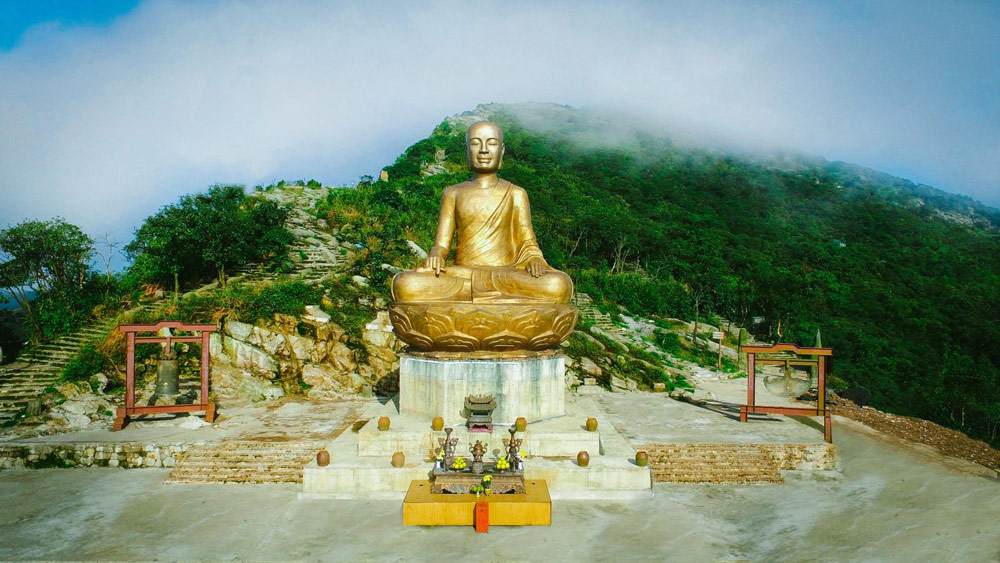
The statue of Buddhist King Tran Nhan Tong, founder of the Truc Lam Yen Tu Zen sect, is placed on the peak of Yen Tu mountain (photo source: Internet)
Continuing his Bodhi vow, he established a lecture hall at Pho Minh Pagoda in Thien Truong district (now in Nam Dinh province, Vietnam) and taught the Dharma here for many years. Later, he traveled to Bo Chinh camp to set up Tri Kien hermitage (now in Quang Binh province) where he propagated the Buddha Dharma, bringing benefits to sentient beings.
In 1308, he passed away at Ngoa Van peak, Yen Tu mountain. With his great contributions to the Dharma and the nation, he was respected by people and later honored as Buddhist King Tran Nhan Tong (also known as the Buddha King of Vietnam).
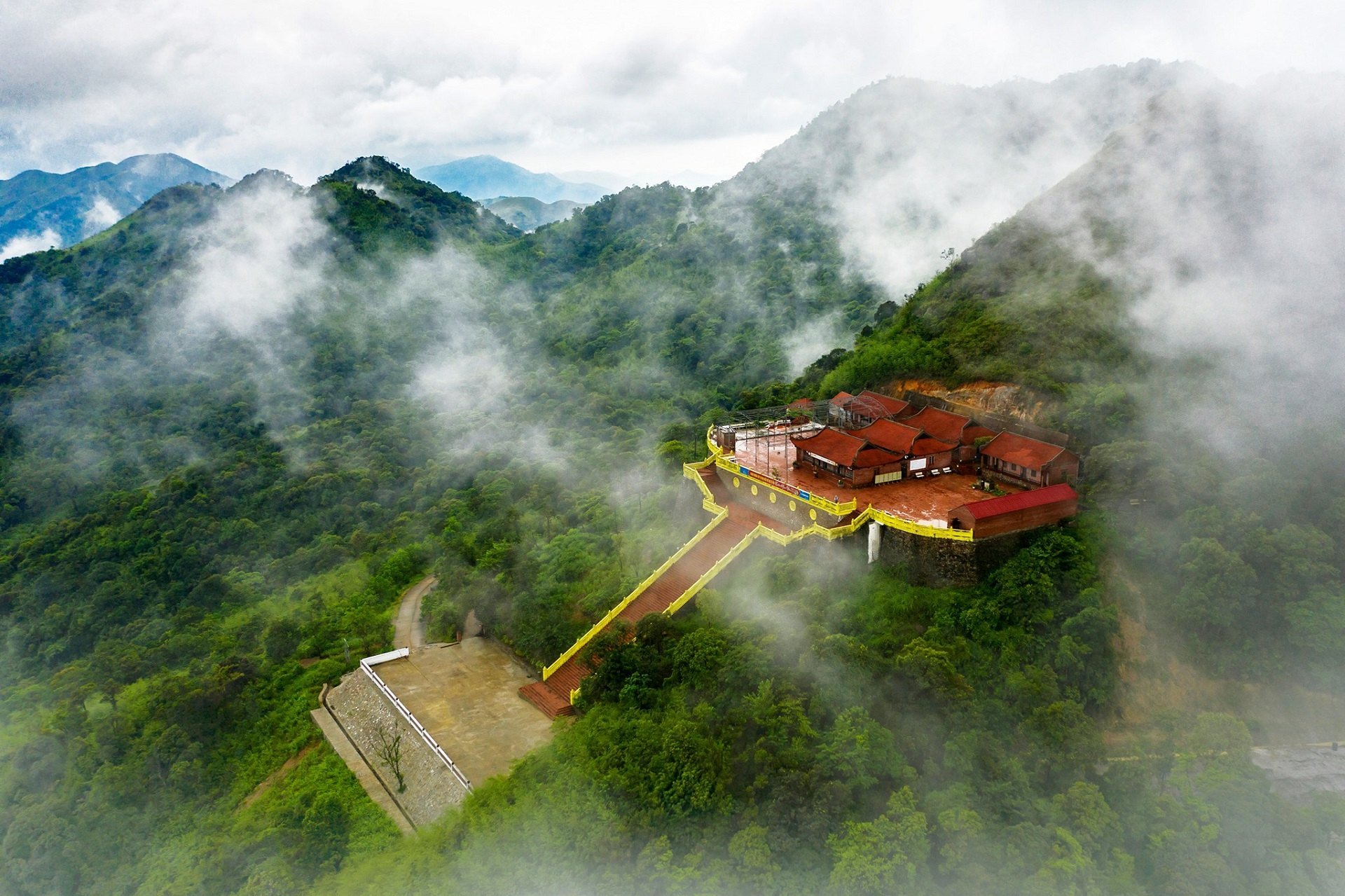
Image of Ngoa Van hermitage at Yen Tu mountain (Quang Ninh) today (source: Internet)
2. The religious career of King Tran Nhan Tong
Leaving the throne, he dwelled in Yen Tu mountain, wearing a monk's robe and preaching Dharma to save sentient beings. He also founded the Truc Lam Zen sect - the pride of Vietnamese Buddhism. Embracing the ideology of Buddhism joining the earthly life, Buddhist King Tran Nhan Tong skillfully combined the Dharma and earthly life by building a life with Buddhism and developing Buddhism through life, wholeheartedly for the development of the country and the happiness of the people.
He is the founder of the Truc Lam Yen Tu Zen sect, also known as its First Patriarch. During his cultivation, he skillfully merged the three Zen lineages including the Zen lineage of Master Vo Ngon Thong, the Zen lineage of Master Thao Duong, and the Zen lineage of Vinītaruci, which existed before the Tran Dynasty, into the Truc Lam Yen Tu Zen lineage.
This demonstrated the harmonious spirit of Buddhist King Tran Nhan Tong as he skillfully merged all religions into a single Zen lineage.
Especially, it was not an ordinary thing when a king gave up his throne to become a monk and practice Dhutanga. He was aware that practicing Dharma brings immense benefits and worldly materials do not constitute the source of happiness for everyone.
Devoting his whole life to the Dharma and the nation, Buddhist King Tran Nhan Tong made great contributions to protecting the country, building the Truc Lam Zen sect, spreading Buddhism, and benefiting people.


